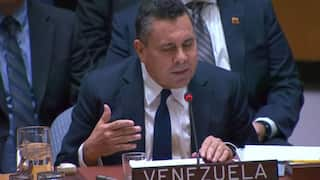'Have Learnt Our Lesson': Pakistan PM On Wars With India As Country Fights Economic Crisis — Report
Pakistan Prime Minister Shehbaz Sharif said he wanted honest talks with India as the country battles an economic crisis. He spoke about wars with India and said Pakistan has learnt its lessons.

Even as Pakistan fights a steep economic crisis with food prices shooting through the roof and people struggling for basic facilities, Prime Minister Shehbaz Sharif has said in an interview that the country has learnt its lessons and wants honest talks with India as previous wars have pushed the country further into poverty, distress, and unemployment.
In an interview with a leading Pakistan daily, he said, "We now have three wars with India and it solely introduced extra distress, poverty and unemployment to the individuals. We now have learnt our lesson and we wish to stay in peace, but for that we should be capable of resolving our real issues."
"My message to the Indian management and PM Modi is that allow us to sit down at the desk and have critical and honest talks to resolve our burning points like Kashmir. It’s as much as us to stay peacefully and make progress or quarrel with one another, and waste time and assets," he added.
Speaking on the issue of war, the Pakistan Prime Minister said, "God forbids, if warfare breaks out, who will stay to tell what had happened".
Pakistan's economy is now being run almost entirely by borrowed money. Even as last week Pakistan managed to secure fresh financial assistance of about $4 billion from Saudi Arabia and the United Arab Emirates, which will help Islamabad avert a debt default, the money comes in the form of a rollover of an existing loan. The additional loans will only add to Pakistan's debt burden. The country has to make a repayment of $73 billion by 2025.
"It may have got a breather now but the country needs to revive the economy - or else it has to keep borrowing from one to repay another, that is the exact situation today," an analyst told India Narrative on condition of anonymity.
As on January 6, its foreign exchange reserves stood at $4.34 billion-most of which has come as loans from other countries. The lifeline provided by Saudi Arabia and UAE will somewhat help in boosting the reserves while allowing Islamabad to resume talks with the International Monetary Fund.
Political uncertainty has intensified after the ousting of former Prime Minister Imran Khan. The Pakistan Tehreek-e-Insaaf leader, since his exit from the government, has staged protest meetings and rallies against the PMN-L government led by Prime Minister Shehbaz Sharif, brother of party supremo Nawaz Sharif and has even called for early elections. Much to the embarrassment of the Sharif government, Khan's party even won the by elections held in July and October.
A Brookings study has said that the country's economic crisis has been brewing even before the catastrophic floods. "An economic crisis comes around every few years in Pakistan, borne out of an economy that doesn't produce enough and spends too much, and is thus reliant on external debt. Every successive crisis is worse as the debt bill gets larger and payments become due," it said, adding that Islamabad may be forced to restructure its loans.
(With inputs from IANS)
Related Video
Punjab News: AAP Leader Shot Dead During Wedding in Amritsar





































